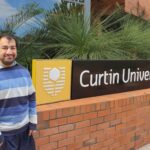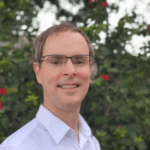Chancellor, Vice-Chancellor, members of the University, distinguished guests, graduates and your proud families and friends.

I acknowledge the Nyungar Peoples on whose lands we meet today and pay my respects to your elders past and present and to your youth who will be your future Elders, custodians of your stories, language and culture.
I also acknowledge graduates here tonight, both old and young, as you too are leaders, be it in your own home or in the community generally. Some of you may be the first of your family to graduate with a university degree and I know how proud you and your family must be, congratulations.
My association with Curtin University goes back a long way. I think it was in 1996 that I first met Vice-Chancellor Jeanette Hacket in India when she was the Dean of International Programs. A year earlier I was posted to India as an Australian Diplomat to establish an education office at the High Commission and forge an education and training relationship with the Government of India.
This was the beginning of the international student revolution to Australia that took our education export market from just one billion dollars a year to 15 billion dollars in 2010. Professor Hacket and I caught up again some years later when I was posted to Vietnam.
The relationship has endured – more by circumstance than good planning I must admit.
My current roles as Deputy Chair of the CRC Remote Economic Participation and National Coordinator, Tackling Indigenous Smoking involve collaborations with the Office of Research and Development, the Public Health Advocacy Institute and the National Drug Research Institute and leading academics and researchers including Mike Daube, Tony Tate, Dennis Grey, Ted Wilkes and Michael Doyle.
Collaboration, partnership and respect are fundamental to success irrespective of whether you are in business, on the hospital floor or lobbying for reform.
As graduates, many of you will be entering for the first time, the world of work. It will be daunting, challenging, disappointing and hopefully rewarding. You will be driven to test what you have learnt and for some it will be directly relevant, but for others, it will be alien to what confronts you. This is normal and my recommendation is to hang in there and make it work. Remember, you are not alone and your contemporaries and lecturers, many of whom you have just spend half a decade with, are there to support you.
I note with some disappointment that there are no known Aboriginal or Torres Strait Islander graduates tonight. I know that Curtin has good support for Indigenous students but the issues of ‘why not’ is broader than Curtin. It is a systemic issue that confronts all universities and it is a challenge for all concerned to work together to address what we would refer to as, a social determinant of health.
Nationally in 2009 there were 9,200 Indigenous students enrolled in undergraduate and post-graduate courses. However, in WA there were 839 students enrolled across all universities, 340 of whom were at Curtin.
The issue is that youth are not transitioning from school to university. In Catholic and government schools in 2008, there were nearly 23,000 Year 10, 11 and 12 Indigenous students across the nation. Almost 4,500 of these were Year 12 students, but by the end of their final year of high school, only 3,600 finished and of these only 415 were eligible to go directly on to university – in WA 683 finished but only 22 got direct entry into university.
So we have some real challenges ahead to identify and address the reasons for these outcomes.
In the spirit of collaboration, partnership and respect let me share two good news stories.
The first is a story that has driven reform of the Indigenous health system and influenced broader health system reform.
In 2005 as the Social Justice Commissioner I reported to the federal Parliament that it was unacceptable that in a country as rich as Australia, the health outcomes of Indigenous Australians was similar to those of people living in rural Bangladesh. It is not credible to suggest that one of the wealthiest nations of the world cannot solve a health crisis affecting less than three percent of its citizens.
I advocated that a fresh look at health provision through the lens of human rights was needed. The report spawned the Close the Gap campaign that I have led with colleagues since 2006.
The Close the Gap Campaign for Indigenous Health Equality is collaboration between over 40 of the major Indigenous and non Indigenous health peak bodies and human rights groups, including the AMA, the Australian General Practice Network and the Australian Peak Nursing and Midwifery Forum.
Together we have worked with the federal and all mainland governments and oppositions and signed a Statement of Intent that effectively commits parties to work in a bipartisan and collaborative way to the year 2030 to address the unacceptable poor health outcomes of Indigenous peoples.
Nationally 1.6 billion dollars has been injected into the Indigenous health sector since 2008 and as former Prime Minister Kevin Rudd said; “it’s a down payment” to redress the inadequate provision of health services and funding of the past.
The Campaign has also been responsible for the Adoption by COAG of the target to achieve Aboriginal and Torres Strait Islander life expectancy within a generation and helping to place Indigenous disadvantage on the national agenda and has led to the term “Closing the Gap” being adopted by all levels of government in relation to overcoming Indigenous disadvantage.
Last Wednesday thirteen peak Indigenous health sector bodies and stakeholders met with the Prime Minister and senior ministers to pledge our commitment to work with the Government to develop a comprehensive national plan that addresses not only health provision, but also the social and cultural determinants of health. Our call has the support of all major health peak bodies.
On 10 March the CTG Campaign celebrates its fifth anniversary and on 24 March we celebrate National Close the Gap day where it is anticipated that over 600 events will take place across Australia. I encourage all here tonight to get involved in CTG initiatives.
The second good news story is about the Rural Health Education Foundation of which I am the National Patron. The Foundation will be your best friend if you take up work in a hospital, clinic or practice in rural or remote Australia.
The Foundation is a non-profit independent educational organisation committed to improving the health of people living in rural and remote Australia through quality health education for both health professionals and their communities.
While one-third of the Australian population lives in rural and remote regions, we know that Australians, and particularly Indigenous Australians, living in these areas experience poorer health than people living in major cities and unfortunately, as remoteness increases, the availability of medical and health professionals decreases and life expectancy drops dramatically.
The Foundation’s ultimate goal is to make a real difference in helping to close the gap of health inequity in rural and remote Australia.
Each and every year the Foundation provides more than 50,000 health and medical professionals in rural and remote Australia with continued access to accredited health education and information to support the delivery of better health outcomes.
The Foundation does this through a national satellite television network of more than 670 viewing sites; online video and audio programs; and producing DVDs, of which 23,000 sets were shipped last year.
Graduates, I mention the CTG Campaign and the Rural Health Education Foundation because the key messages are that as individuals, or collectively, you can make a difference; be it on major reforms or in the workplace. It’s about collaboration, partnership and respect. It is about taking a human rights based approach to the work you do and to know that you are not alone – there are support mechanisms out there – so use them.
In closing I ask you to not forget your days at university and remember that you are now an alumnus of a well-respected university – a university that will call on your support from time to time, because you are family.
Thank you Curtin University for conferring me with the Honorary Doctorate of Science, that I will cherish. I am honoured, privileged and humbled.
Graduates, all the best – and dare to dream.


